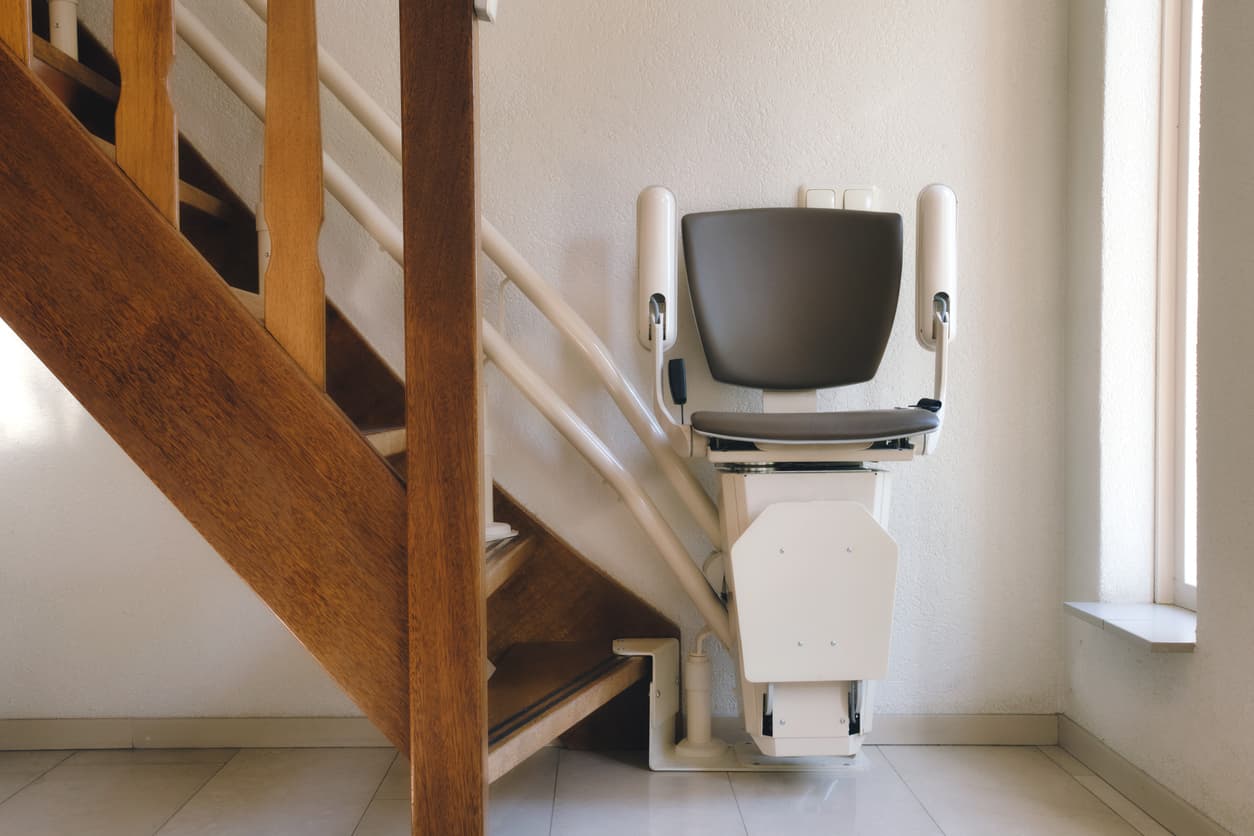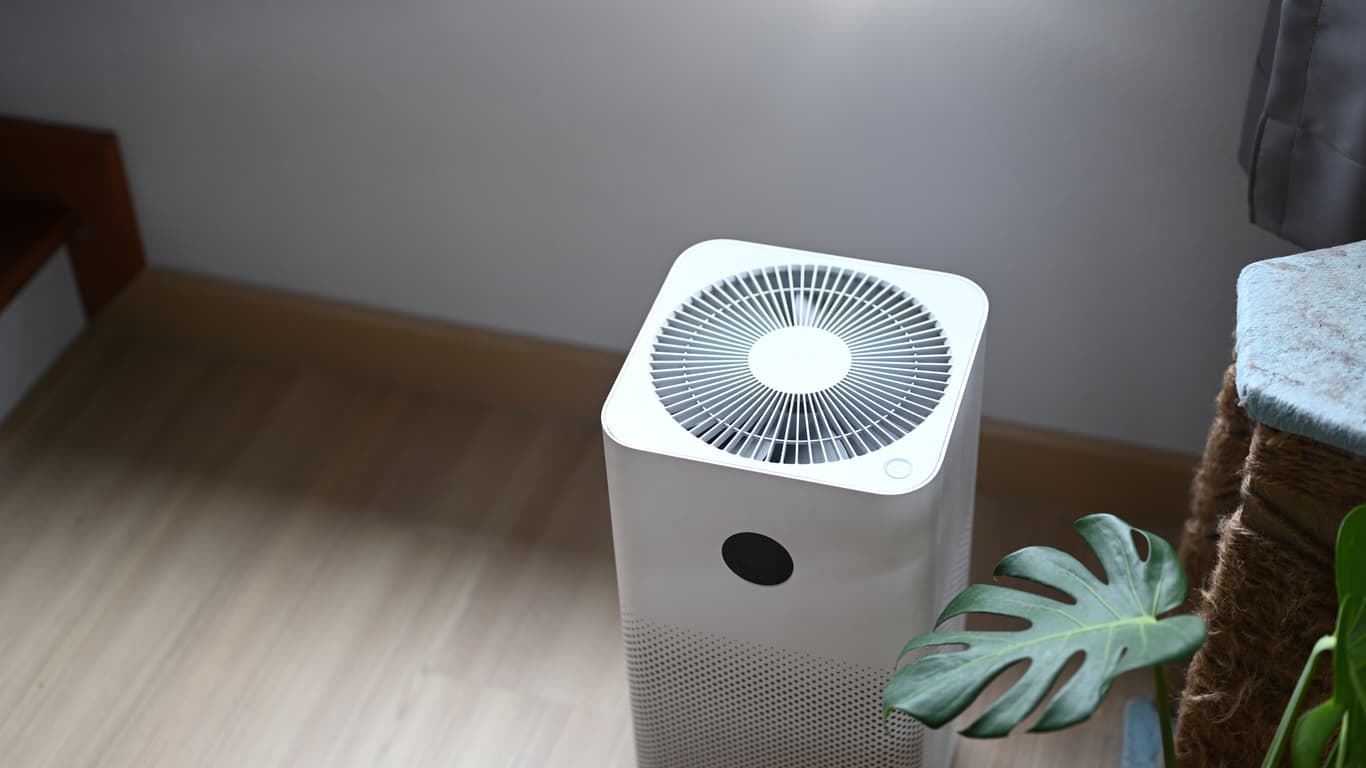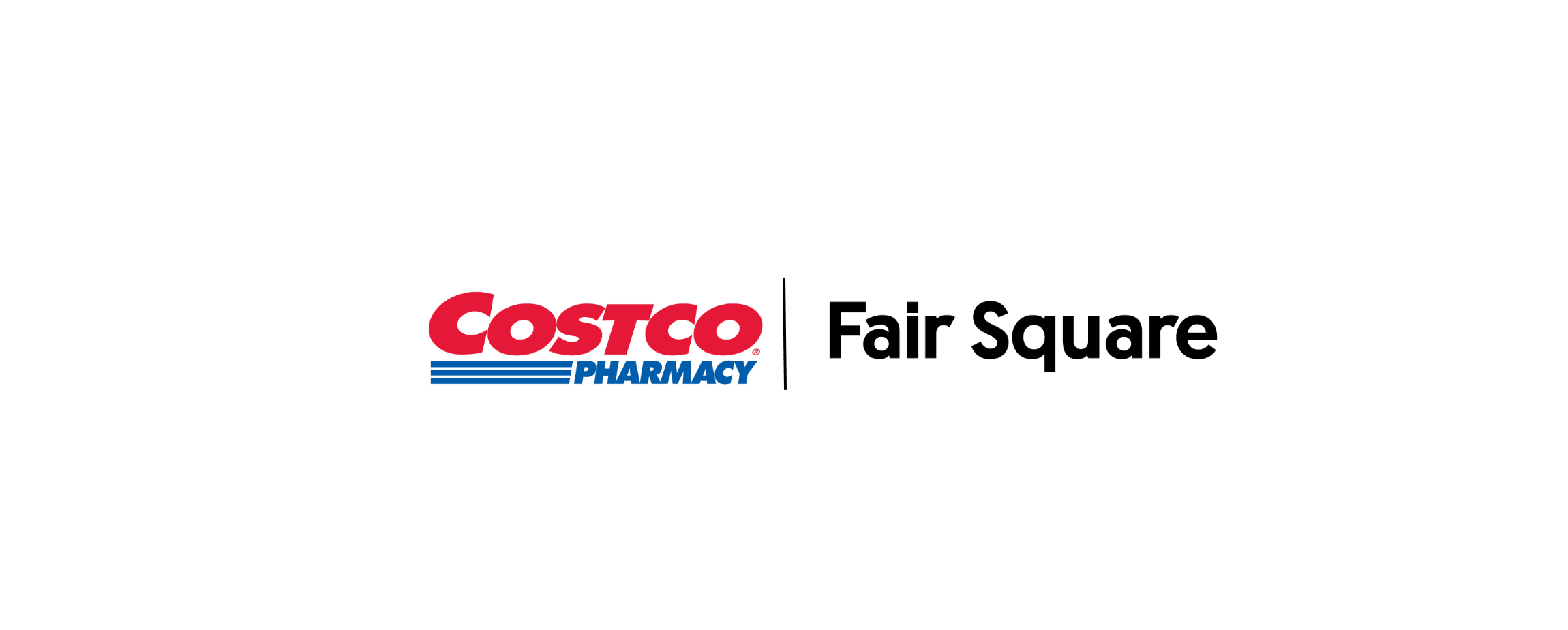Find out how to save on your incontinence supplies
Over 50% of people aged 65+ experience incontinence.
Speak with a Medicare Advocate
People can manage the condition with incontinence supplies, but costs add up over time and can become a long-term burden.
Luckily, there are several ways to save money on these products. Keep reading to find out how.
What is Incontinence?
Incontinence is the loss of control over one's bladder or bowel movements.
What Causes Incontinence?
The following factors can cause incontinence:
Muscle or nerve damage
Urinary tract infections
Prostate problems
Pregnancy
Childbirth
Certain medications
Age-related changes — weakened muscles or decreased sensitivity in the bladder
Medical conditions — diabetes, multiple sclerosis, and Parkinson’s disease
What Products Can I Use to Manage Incontinence?
Incontinence products provide extra protection from leaks. You can use the following supplies to manage incontinence:
Incontinence pads
Absorbent briefs
Protective underwear
Bed and chair protection
Catheters and penile sheaths
Skincare and hygiene products
Specially adapted clothing and swimwear
Does Medicare Cover Incontinence Supplies?
Typically, no. Medicare doesn't cover adult diapers, incontinence pads, protective underwear, or bedwetting products.
Why? Medicare doesn't consider incontinence supplies to be durable medical equipment (DME).
Does Medicare Cover Other Incontinence Services?
Yes. Medicare Parts B might cover some incontinence services, including:
Outpatient care — your doctor visits
Durable medical equipment (DME) — bladder scanners, urological supplies, catheters and collection devices, intermittent positive pressure breathing (IPPB) machines and their accessories, enteral nutrition pumps, or ostomy products
Home health services
Incontinence-related preventive services
Depending on your condition, Medicare might also cover the following:
Percutaneous Tibial Nerve Stimulation, or PTNS
— a procedure that uses electrical stimulation to help improve bladder controlOxybutynin
— a drug used to treat symptoms of urinary incontinence and overactive bladder (like frequent urination, urgency, and urge incontinence)Urodynamic testing
— tests used to evaluate the function of the urinary system (i.e., the bladder and urethra)
Bladder Sling Surgery
— treatment for stress incontinence
Note: Medicare covers these treatments only if your doctor declares them medically necessary.
Will My Medigap Plan Help Cover Incontinence Supplies?
No. Medigap plans, also known as Medicare Supplement plans, are extensions of Original Medicare and help cover some of your out-of-pocket costs left after Medicare coverage.
Since Original Medicare doesn't cover incontinence supplies, Medigap plans don't either.
How Can I Get Coverage for My Incontinence Supplies?
While Medicare doesn't cover incontinence supplies — like adult diapers, incontinence pads, protective underwear, and bedwetting products — you can still get coverage for these items.
Here's how:
1. Enroll in a Medicare Advantage Plan
Medicare Advantage plans (AKA Medicare Part C) are offered by private insurance companies. They cover the same services as Original Medicare (Medicare Part A and Part B) but some have added benefits.
Some Medicare Advantage plans cover incontinence supplies — like disposable adult briefs or pull-ups, bladder control pad guards, and bed underpads.
However, exact coverage varies depending on your plan.
If you’re enrolled in a Medicare Advantage plan, ask your insurance provider if your plan covers incontinence supplies
If you’re not enrolled in a Medicare Advantage plan, reach out to your insurance provider for information on available plans in your area and the coverage rules for each one
2. Enroll in Medicaid
Medicaid
However, Medicaid coverage for incontinence supplies varies by state. In other words, some states cover these supplies through their Medicaid program, while others do not. In addition, some states may have brand restrictions or monthly limits on the number of incontinence supplies covered under their Medicaid program.
3. Get Veteran’s Health Care
If you’re a veteran
However, the VA usually supplies a standard type of adult diaper that may not meet your individual needs. In this case, your doctor can prescribe or provide a medical justification for a different brand that's more suitable for you and explain why it's a better option.
How Can I Save Money on My Incontinence Supplies?
Here are a few ways you can save money on your incontinence supplies:
1. HSA and FSA
Money in a Health Savings Account (HSA) is not subject to federal income tax. It can be used to pay for "qualified medical expenses" as determined by the Internal Revenue Service (IRS).
Incontinence supplies are considered a qualified medical expense. So you can use this tax-free fund to pay for your incontinence supplies, potentially saving money.
Similarly, money in a Flexible Spending Account (FSA) is not subject to federal, state or social security taxes and can be used to buy incontinence supplies.
Note: If you’ve delayed enrolling in Medicare because you're on private insurance
If you’re enrolling once you turn 65, you need to stop making contributions a month before your start date.
2. Charitable Organizations
Non-profit organizations — diaper banks, food banks, senior centers, or other community resources — may provide adult diapers for little to no cost.
3. Use coupons and discounts
Many manufacturers offer coupons and discounts for adult diapers and incontinence products. You can find them on company websites or in stores.
4. Buy in bulk
Buying larger quantities of incontinence supplies can help you save money in the long run.
Can I Get Free Adult Diapers?
Yes. You can access free adult diapers in the following ways:
Medicaid — Medicaid programs in some states provide free incontinence supplies under certain conditions
Charitable organizations — Some non-profit organizations (e.g., diaper banks, food banks, senior centers, or other community resources) may provide adult diapers for free
Manufacturer samples — Some manufacturers offer free samples of their products to try before you buy
Takeaway
Incontinence is a common condition that can be challenging to manage, especially for older adults. Incontinence supplies can provide relief but can be expensive over time. Medicare does not typically cover incontinence supplies — such as adult diapers, pads, and undergarments.
However, if you're enrolled in a Medicare Advantage Plan or are eligible for Medicaid, you might get coverage for your incontinence supplies.
You can also save money on these products by finding discounts, seeking help from local non-profits, or using your HSA or FSA.
Contact your insurance provider regarding the coverage options for incontinence supplies under your plan. You can also talk to our advisors at 1-888-376-2028 if you need assistance. We can explain the intricacies of Medicare and respond to any questions you may have.
Recommended Articles

Does Medicare Cover Stair Lifts?
Nov 18, 2022

Is Vitrectomy Surgery Covered by Medicare?
Dec 2, 2022

Plan G vs. Plan N
Jan 28, 2022

Does Medicare Cover Air Purifiers?
Nov 18, 2022

Can I Choose Marketplace Coverage Instead of Medicare?
May 2, 2023

Does Medicare Cover Macular Degeneration?
Nov 30, 2022

13 Best Ways for Seniors to Stay Active in Jacksonville
Mar 3, 2023

How Does the End of the COVID-19 Public Health Emergency Affect Your Medicare?
Mar 3, 2023

13 Best Ways for Seniors to Stay Active in Indianapolis
Mar 9, 2023

Does Medicare Cover Cataract Surgery?
Dec 22, 2022

Which Medigap Policies Provide Coverage for Long-Term Care?
Sep 16, 2022

Medicare Advantage Plans for Disabled People Under 65
Mar 24, 2023

Medigap vs. Medicare Advantage
May 25, 2020

Costco Pharmacy Partners with Fair Square
Jan 13, 2023

Does Medicare Cover Vitamins?
Dec 5, 2022

Does Medicare Cover Disposable Underwear?
Dec 8, 2022

Can I Change My Primary Care Provider with an Advantage Plan?
Aug 25, 2023

Will Medicare Cover Dental Implants?
Jun 2, 2022
More of our articles
10 Top Medicare Supplement (Medigap) Companies for 2025
13 Best Ways for Seniors to Stay Active in Philadelphia
15 Best Ways for Seniors to Stay Active in Denver
2024 Cost of Living Adjustment
2024 Fair Square Client Retention and Satisfaction Report
2024 Fair Square NPS Report
2025 Medicare Price Changes
Are Medicare Advantage Plans Bad?
Building the Future of Senior Healthcare
Can I Laminate My Medicare Card?
Comparing All Medigap Plans | Chart Updated for 2025
Do I Need to Renew My Medicare?
Does Medicare Cover Abortion Services?
Does Medicare Cover an FMT?
Does Medicare Cover Boniva?
Does Medicare Cover Breast Implant Removal?
Does Medicare Cover Cartiva Implants?
Does Medicare Cover Cervical Disc Replacement?
Does Medicare Cover Compounded Medications?
Does Medicare cover Deviated Septum Surgery?
Does Medicare Cover Diabetic Eye Exams?
Does Medicare Cover Flu Shots?
Does Medicare Cover Hypnotherapy?
Does Medicare Cover Incontinence Supplies?
Does Medicare Cover Inspire for Sleep Apnea?
Does Medicare Cover Iovera Treatment?
Does Medicare Cover Jakafi?
Does Medicare Cover Ketamine Infusion for Depression?
Does Medicare Cover Kyphoplasty?
Does Medicare Cover Lipoma Removal?
Does Medicare Cover LVAD Surgery?
Does Medicare Cover Mouth Guards for Sleep Apnea?
Does Medicare Cover Nexavar?
Does Medicare Cover Oxybutynin?
Does Medicare Cover PTNS?
Does Medicare Cover RSV Vaccines?
Does Medicare Cover Scleral Lenses?
Does Medicare Cover Service Animals?
Does Medicare Cover Shock Wave Therapy for Plantar Fasciitis?
Does Medicare Cover SIBO Testing?
Does Medicare Cover the Urolift Procedure?
Does Medicare Cover the WATCHMAN Procedure?
Does Medicare Cover Zilretta?
Does Medicare Have Limitations on Hospital Stays?
Does Retiring at Age 62 Make Me Eligible for Medicare?
Explaining the Different Enrollment Periods for Medicare
Health Savings Accounts (HSAs) and Medicare
How Does Medicare Cover Colonoscopies?
How is Medicare Changing in 2025?
How Much Does a Pacemaker Cost with Medicare?
How Much Does Medicare Part B Cost in 2025?
How Much Does Rexulti Cost with Medicare?
How Much Does Trelegy Cost with Medicare?
How Often Can I Change Medicare Plans?
Is Balloon Sinuplasty Covered by Medicare?
Is Emsella Covered by Medicare?
Medicare Deductibles Resetting in 2025
Medicare Explained
Medicare Guaranteed Issue Rights by State
Medicare Savings Programs in Kansas
Medicare Supplement Plans for Low-Income Seniors
Should You Work With A Remote Medicare Agent?
The Easiest Call You'll Ever Make
Top 10 Physical Therapy Clinics in San Diego
What Does Medicare Cover for Stroke Patients?
What Is a Medicare Advantage POS Plan?
What Is Medical Underwriting for Medigap?
What People Don't Realize About Medicare
What You Need to Know About Creditable Coverage
When to Choose Medicare Advantage over Medicare Supplement
Why You Should Keep Your Medigap Plan
Will Medicare Cover it?
Get the Fair Square Bulletin
Medicare savings tips, helpful guides, and more.
Virgil Insurance Agency, LLC (DBA Fair Square Medicare) and www.fairsquaremedicare.com are privately owned and operated by Help Button Inc. Medicare supplement insurance plans are not connected with or endorsed by the U.S. government or the federal Medicare program. This is a solicitation of insurance. A licensed agent/producer may contact you. Medicare Supplement insurance is available to those age 65 and older enrolled in Medicare Parts A and B and, in some states, to those under age 65 eligible for Medicare due to disability or End-Stage Renal disease. Virgil Insurance Agency is a licensed and certified representative of Medicare Advantage HMO, HMO SNP, PPO, PPO SNP and PFFS organizations and stand-alone PDP prescription drug plans. Each of the organizations we represent has a Medicare contract. Enrollment in any plan depends on contract renewal. The plans we represent do not discriminate on the basis of race, color, national origin, age, disability, or sex. Plan availability varies by region and state. For a complete list of available plans please contact 1-800-MEDICARE (TTY users should call 1-877-486-2048), 24 hours a day/7 days a week or consult www.medicare.gov. © 2026 Help Button Inc
We do not offer every plan available in your area. Any information we provide is limited to those plans we do offer in your area. Please contact Medicare.gov or 1-800-MEDICARE to get information on all of your options.
MULTIPLAN_FairSquareMedicare_01062022_M
Fair Square Medicare


